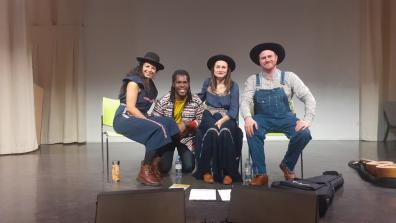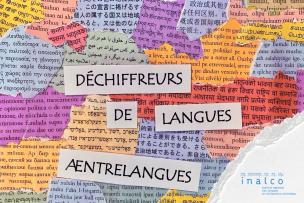Cordée "Langues et Cultures du Monde": Inalco turns its ear to young people and to foreign cultures
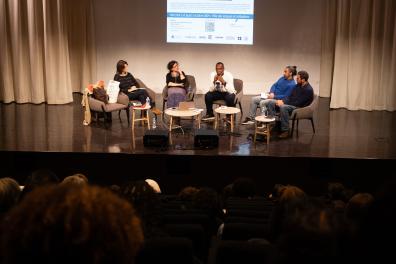
On the occasion of the Intangible Cultural Heritage Days, Inalco welcomed seventy high school students from Ile-de-France. A round table entitled "Migrations" enabled them to think of cuisine as a set of practices that are both individual and collective, linked to cultural transfers and social transformations. They were particularly moved by Harouna Sow's story. He became a chef after arriving from Mali in 2012, and is now involved with the Refugee Food association.
I too come from an immigrant background, and to hear that he has fulfilled his dream of becoming a chef touched my heart.
Testimony of one of the roped-up youngsters
The students also had the opportunity to question their own backgrounds and languages, and discovered the documentaries of the Grandmas Project: workshops that opened up a space for them to reflect on the processes of transmitting culinary know-how down the generations. The high school students' participation in this day was both a foretaste of the biographical and heritage survey projects they will be carrying out in the field this year, and an opportunity to broaden their outlook on "foreign" cultures.
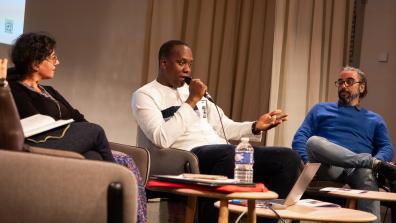
The foreign world was also present last June at the closing ceremony of the Cordée Langues et Cultures du Monde: twenty-three actors from Africa, the Middle East and South America came to Inalco to perform the multilingual play Ubu en Afrique, the fruit of a citizen's workshop led by Laval's Théâtre du Tiroir.
Inspired by Alfred Jarry's Ubu Roi, Ubu en Afrique takes place in an imaginary country, somewhere in Africa, where ever more tyrannical power reigns. Colorful characters, giant puppets and flamboyant costumes, electric rhythm: a simple yet spectacular set design for a theatrical, cultural but also linguistic journey, since the songs and lines are spoken in some fifteen different languages.
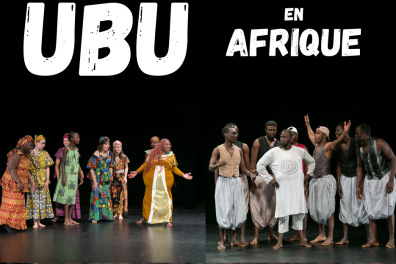
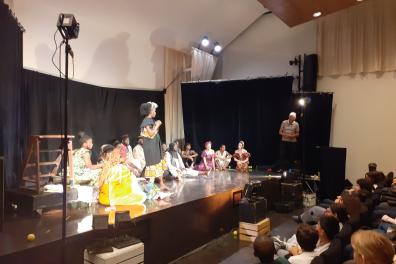
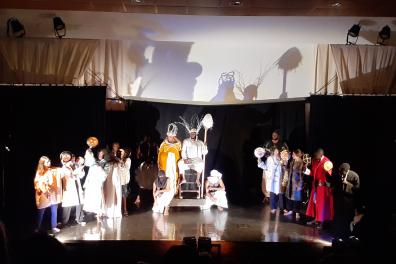
The staging resonates with the message carried by the play and the actors, who proclaim loud and clear that diversity is synonymous with richness. "Theater is about getting out of misery, allowing others to look at you. I help people who've never been to the theater and don't know France to get up on stage and stand on their own two feet," explains director Jean-Luc Bansard.
The performance ended with lively exchanges between the actors and the audience, echoing all the actions carried out as part of La Cordée. The show was in fact the crowning achievement of a year of discovery for the six hundred roped-in students. Cycles of workshops, cultural visits, encounters and shows: this program aims to be a space for discovery and experimentation in the footsteps of world languages and cultures.
As evidenced by the other guests on the three closing days: storyteller Ange Grah, who told stories in Nouchi and Mandingue, the Trio de Cantadores from Paris and their polyphonic acoustic songs, and Nabil Wakim, journalist and author of a book on the loss of his mother tongue, Arabic, and bearer of a reflection on the question of minority languages in France. The closing days were rich, demanding and multilingual, reflecting the commitment of the young people involved in the program over the past three years.
